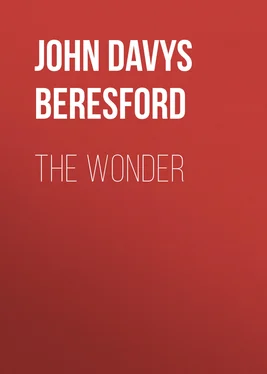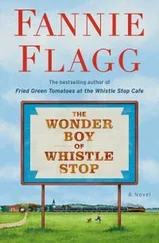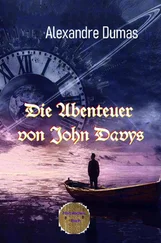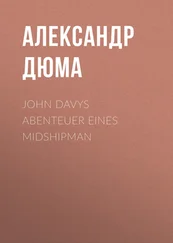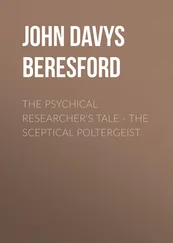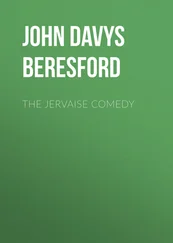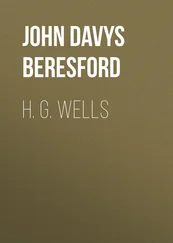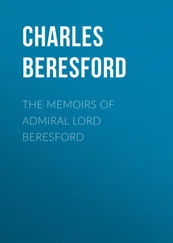John Davys Beresford - The Wonder
Здесь есть возможность читать онлайн «John Davys Beresford - The Wonder» — ознакомительный отрывок электронной книги совершенно бесплатно, а после прочтения отрывка купить полную версию. В некоторых случаях можно слушать аудио, скачать через торрент в формате fb2 и присутствует краткое содержание. Жанр: foreign_prose, foreign_antique, на английском языке. Описание произведения, (предисловие) а так же отзывы посетителей доступны на портале библиотеки ЛибКат.
- Название:The Wonder
- Автор:
- Жанр:
- Год:неизвестен
- ISBN:нет данных
- Рейтинг книги:3 / 5. Голосов: 1
-
Избранное:Добавить в избранное
- Отзывы:
-
Ваша оценка:
- 60
- 1
- 2
- 3
- 4
- 5
The Wonder: краткое содержание, описание и аннотация
Предлагаем к чтению аннотацию, описание, краткое содержание или предисловие (зависит от того, что написал сам автор книги «The Wonder»). Если вы не нашли необходимую информацию о книге — напишите в комментариях, мы постараемся отыскать её.
The Wonder — читать онлайн ознакомительный отрывок
Ниже представлен текст книги, разбитый по страницам. Система сохранения места последней прочитанной страницы, позволяет с удобством читать онлайн бесплатно книгу «The Wonder», без необходимости каждый раз заново искать на чём Вы остановились. Поставьте закладку, и сможете в любой момент перейти на страницу, на которой закончили чтение.
Интервал:
Закладка:
As I developed my theory, my eagerness grew. And then suddenly an inspiration came to me. In my excitement I spoke aloud and smacked the desk in front of me with my open hand. "Why, of course!" I said. "That is the key."
An old man in the next seat scowled fiercely. The attendants in the central circular desk all looked up. Other readers turned round and stared at me. I had violated the sacred laws of the Reading Room. I saw one of the librarians make a sign to an attendant and point to me.
I gathered up my books quickly and returned them at the central desk. My self-consciousness had returned, and I was anxious to be away from the observation of the many dilettante readers who found my appearance more engrossing than the books with which they were dallying on some pretext or another.
Yet, curiously, when I reached the street, the theory which had come to me in the Museum with the force and vividness of an illuminating dream had lost some of its glamour. Nevertheless, I set it out as it then shaped itself in my mind.
The great restraining force in the evolution of man, so I thought, has been the restriction imposed by habit. What we call instinct is a hereditary habit. This is the first guiding principle in the life of the human infant. Upon this instinct we immediately superimpose the habits of reason, all the bodily and intellectual conventions that have been handed down from generation to generation. We learn everything we know as children by the hereditary, simian habit of imitation. The child of intellectual, cultured parents, born into savage surroundings, becomes the slave of this inherited habit—call it tendency, if you will, the intention is the same. I elaborated the theory by instance and introspection, and found no flaw in it....
And here, by some freak of nature, was a child born without these habits. During the period of gestation, one thought had dominated the minds of both parents—the desire to have a son born without habits. It does not seriously affect the theory that the desire had a peculiar end in view; the wish, the urgent, controlling, omnipotent will had been there, and the result included far more than the specific intention.
Already some of my distaste for the Stott child had vanished. It was accountable, and therefore no longer fearful. The child was supernormal, a cause of fear to the normal man, as all truly supernormal things are to our primitive, animal instincts. This is the fear of the wild thing; when we can explain and give reasons, the horror vanishes. We are men again.
I did not quite recover the glow of my first inspiration, but the theory remained with me; I decided to make a study of the child, to submit knowledge to his reason. I would stand between him and the delimiting training of the pedagogue, I thought.
Then I reached home, and my life was changed.
This story is not of my own life, and I have no wish to enter into the curious and saddening experiences which stood between me and the child of Ginger Stott for nearly six years. In that time my thoughts strayed now and again to that cottage in the little hamlet on those wooded hills. Often I thought "When I have time I will go and see that child again if he is alive." But as the years passed, the memory of him grew dim, even the memory of his father was blurred over by a thousand new impressions. So it chanced that for nearly six years I heard no word of Stott and his supernormal infant, and then chance again intervened. My long period of sorrow came to an end almost as suddenly as it had begun, and by a coincidence I was once more entangled in the strange web of the abnormal.
In this story of Victor Stott I have bridged these six years in the pages that follow. In doing this I have been compelled to draw to a certain extent on my imagination, but the main facts are true. They have been gathered from first-hand authority only, from Henry Challis, from Mrs. Stott, and from her husband; though none, I must confess, has been checked by that soundest of all authorities, Victor Stott himself, who might have given me every particular in accurate detail, had it not been for those peculiarities of his which will be explained fully in the proper place.
PART TWO
THE CHILDHOOD OF THE WONDER
CHAPTER IV
THE MANNER OF HIS BIRTH
I
Stoke-Underhill lies in the flat of the valley that separates the Hampden from the Quainton Hills. The main road from London to Ailesworth does not pass through Stoke, but from the highway you can see the ascent of the bridge over the railway, down the vista of a straight mile of side road; and, beyond, a glimpse of scattered cottages. That is all, and as a matter of fact, no one who is not keeping a sharp look-out would ever notice the village, for the eye is drawn to admire the bluff of Deane Hill, the highest point of the Hampdens, which lowers over the little hamlet of Stoke and gives it a second name; and to the church tower of Chilborough Beacon, away to the right, another landmark.
The attraction which Stoke-Underhill held for Stott, lay not in its seclusion or its picturesqueness but in its nearness to the County Ground. Stott could ride the two flat miles which separated him from the scene of his work in ten minutes, and Ailesworth station is only a mile beyond. So when he found that there was a suitable cottage to let in Stoke, he looked no farther for a home; he was completely satisfied.
Stott's absorption in any matter that was occupying his mind made him exceedingly careless about the detail of his affairs. He took the first cottage that offered when he looked for a home, he took the first woman who offered when he looked for a wife.
Stott was not an attractive man to women. He was short and plain, and he had an appearance of being slightly deformed, a "monkeyish" look, due to his build and his long arms. Still, he was famous, and might, doubtless, have been accepted by a dozen comely young women for that reason, even after his accident. But if Stott was unattractive to women, women were even more unattractive to Stott. "No opinion of women?" he used to say. "Ever seen a gel try to throw a cricket ball? You 'ave? Well, ain't that enough to put you off women?" That was Stott's intellectual standard; physically, he had never felt drawn to women.
Ellen Mary Jakes exhibited no superiority over her sisters in the matter of throwing a cricket ball. She was a friend of Ginger's mother, and she was a woman of forty-two, who had long since been relegated to some remote shelf of the matrimonial exchange. But her physical disadvantages were outbalanced by her mental qualities. Ellen Mary was not a book-worm, she read nothing but the evening and Sunday papers, but she had a reasoning and intelligent mind.
She had often contemplated the state of matrimony, and had made more than one tentative essay in that direction. She had walked out with three or four sprigs of the Ailesworth bourgeoisie in her time, and the shadow of middle-age had crept upon her before she realised that however pliant her disposition, her lack of physical charm put her at the mercy of the first bright-eyed rival. At thirty-five Ellen had decided, with admirable philosophy, that marriage was not for her, and had assumed, with apparent complacency, the outward evidences of a dignified spinsterhood. She had discarded gay hats and ribbons, imitation jewellery, unreliable cheap shoes, and chill diaphanous stockings, and had found some solace for her singleness in more comfortable and suitable apparel.
When Ellen, a declared spinster of seven years' standing, was first taken into the confidence of Ginger Stott's mother, the scheme which she afterwards elaborated immediately presented itself to her mind. This fact is a curious instance of Ellen Mary's mobility of intellect, and the student of heredity may here find matter for careful thought. 3 3 A study of genius shows that in a percentage of cases so large as to exclude the possibility of coincidence, the exceptional man, whether in the world of action, of art, or of letters, seems to inherit his magnificent powers through the female line. Sir Francis Galton, it is true, did not make a great point of this curious observation, but the tendency of more recent analyses is all in the direction of confirming the hypothesis; and it would seem to hold good in the converse proposition, namely, that the exceptional woman inherits her qualities from her father.
Интервал:
Закладка:
Похожие книги на «The Wonder»
Представляем Вашему вниманию похожие книги на «The Wonder» списком для выбора. Мы отобрали схожую по названию и смыслу литературу в надежде предоставить читателям больше вариантов отыскать новые, интересные, ещё непрочитанные произведения.
Обсуждение, отзывы о книге «The Wonder» и просто собственные мнения читателей. Оставьте ваши комментарии, напишите, что Вы думаете о произведении, его смысле или главных героях. Укажите что конкретно понравилось, а что нет, и почему Вы так считаете.
